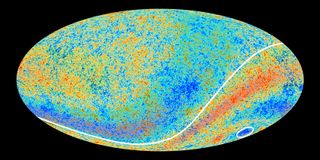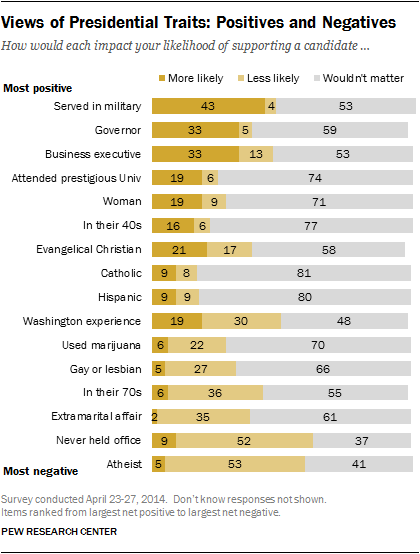The Intelligent Design, look the video in
Scientific Christianity strikes again
was aimed not to prove God, but to introduce Hypothesis of God's existence into Scientific Community.
Why? Before the developing scientific proof of God, one must ask the question: "Is there God?"
And this question must sound in a peer-review scientific journal.
But, sadly, the
Christianity is not yet legalized. Unlike bisexual activity.
It's going to be tough for all of us to convert to bisexualism. But, Reverend Jerry Falwell used to say that it is just a matter of choice. Falwell claimed that the transition was easy (thinking that everyone would choose to be straight, rather than Gay). But, if it was easy for Gays to choose to be straight, I would imagine that it would be easy for straights to choose to be Gay.
It is a fact that some priests raped small boys. Centuries ago, the Catholic church required that priests can't marry. Since God said "go forth and multiply" this requirement not to marry is against the orders and intentions of God. Could it be that sexual frustration causes some priests to rape young boys? Shouldn't the Catholic church punish child-raping priests, rather than transfer them to other parishes where they rape more little boys? Shouldn't the Catholic church worship God more than mammon? Why, then, should the Catholic church declare bankruptcy to prevent their innocent young victims from getting compensated for the crimes against them?
Given the statistical probability that priests are more apt to rape little boys, should we worry about all priests? Perhaps the fact that the Catholic church has allowed boy-raping priests adds to the worry that some have that all priests might be child-rapists?
Those who enter the Catholic priesthood do so with the understanding that they cannot marry or carry on with sexual affairs. If so, they know that their life of celibacy might lend them to homosexual acts with unwilling little boys. So, it seems that those who choose the profession of the priesthood might be prone to raping little boys before they even begin as priests.
It seems like the pot calling the kettle black for a priest to go after Gays.
Currently, the Religious Right is ruling much of the US. They voted in vast numbers and campaigned. The result was the election of Reagan, Bush, W. Bush and Trump. That resulted in the lifetime appointment of Supreme Court justices. Their decisions are about prayer in schools, abortion, freedom of religion, and the various freedoms that allow freedom of religion (right to assemble, speak, and write in the press).
As a result of the Religious Right's power, Gay marriage is thought to somehow (I don't know how) damage marriage vows of non-Gays. Gays can't inherit through community property laws. They would lose custody of children if one Gay partner dies. They would not be eligible for the Social Security of their partner. Etc.
All of these issues are a result of a few words in the bible suggesting that God doesn't want Gays.
Instead of
cherry-picking Gay issues out of the bible, should we be concerned with other aspects of the bible? "Cherry-picking" means concentrating on one issue while ignoring the other issues.
"Thou shalt not kill" (war in Iraq)
"Do unto others" (torture, war)
Etc.
Don't you think that the murder of 1,000,000 Iraqi lives, who were not involved in terrorism, is more important than going after Gays with a vengeance?
God said that vengeance was his. So, it was not up to us to judge or exact vengeance regarding Gays.
You could always propose that the study of God should be scientific. However, there doesn't appear to be much to support that speculation.
You don't see Gays trying to take away rights from Christians or heterosexuals.


